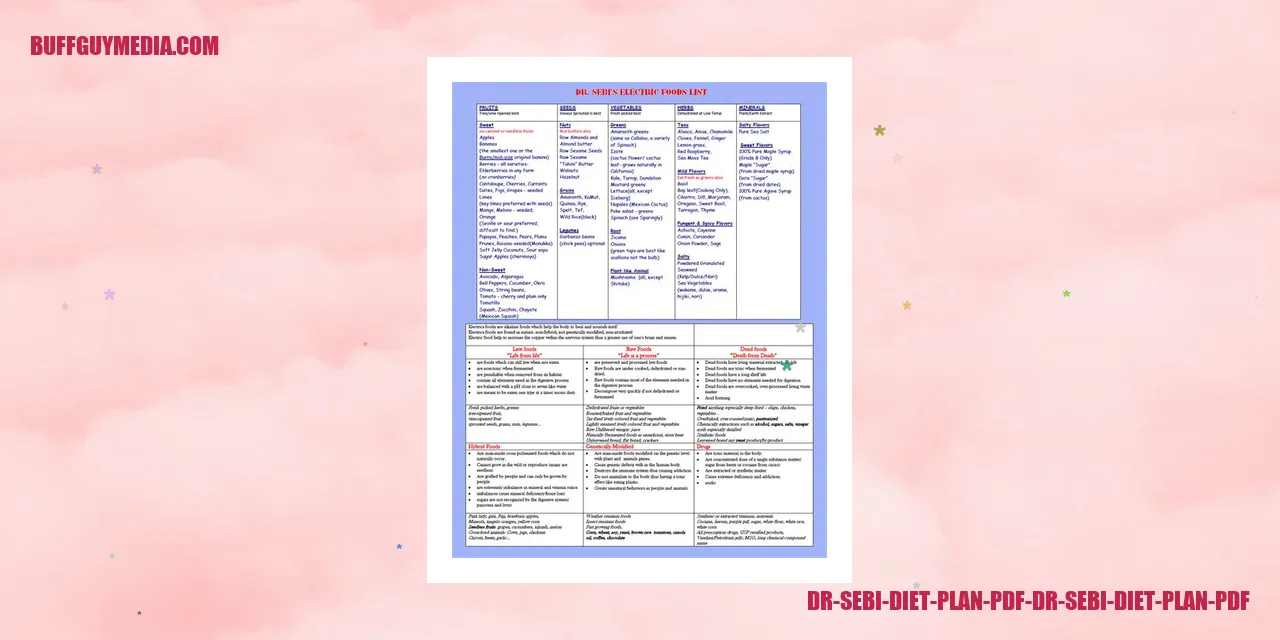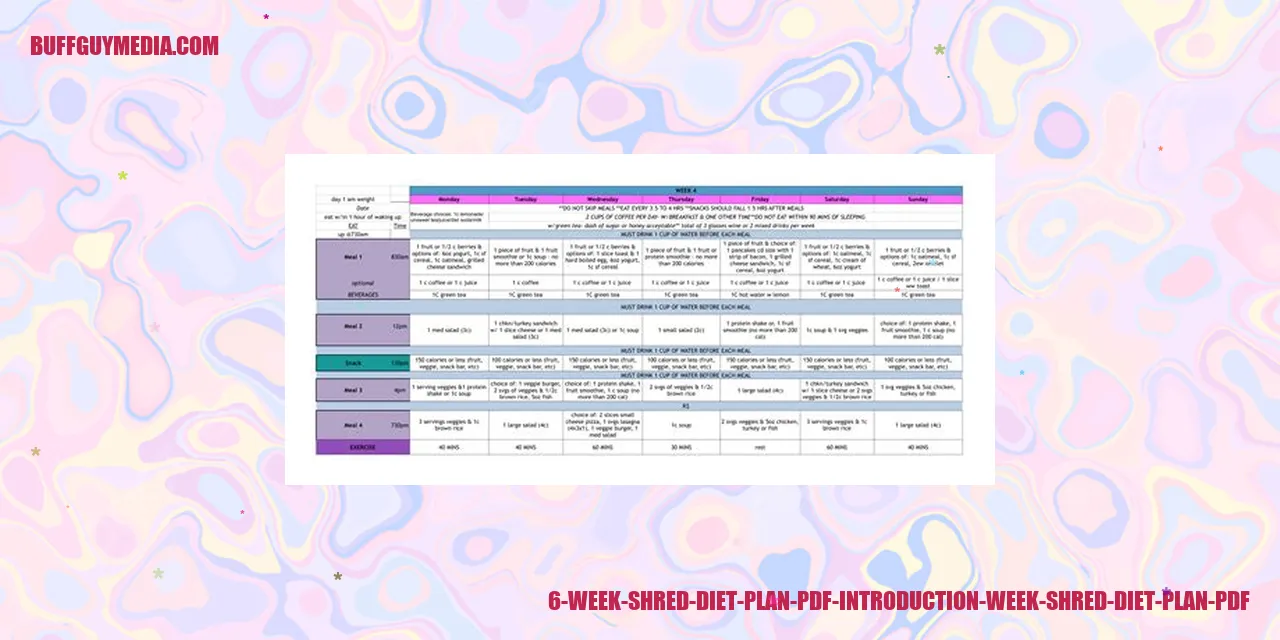Tackling Common Obstacles on the Sapien Diet
Understanding the Sapien Diet
The Sapien Diet, also referred to as the Paleolithic or Caveman diet, is founded on the principle of consuming foods that were prevalent during the Paleolithic era. This diet primarily focuses on consuming whole, unprocessed foods that are similar to what our hunter-gatherer ancestors used to eat.
The Advantages of Adopting the Sapien Diet
There are several benefits associated with following the Sapien Diet. To begin with, it promotes weight management and aids in achieving and maintaining a healthy body weight. By prioritizing whole foods and avoiding processed foods, calorie intake can be reduced and metabolism can be enhanced.
In addition, adhering to the Sapien Diet can contribute to overall improvements in health. By consuming natural, nutrient-rich foods, the body receives a wide range of essential vitamins, minerals, and antioxidants. This can help strengthen the immune system, reduce inflammation, and decrease the risk of chronic conditions, including heart disease and diabetes.
Furthermore, the Sapien Diet can have a positive impact on digestion. By eliminating grains, legumes, and dairy products, which are known to cause digestive issues in some individuals, optimal digestive health can be achieved.
Developing a Sapien Diet Meal Plan
Creating a Sapien Diet Meal Plan involves choosing natural, unprocessed, and nutrient-dense foods. The key elements of this diet include lean meats, fish, fruits, vegetables, nuts, and seeds.
Here’s a step-by-step guide on how to create a Sapien Diet Meal Plan:
- Begin by selecting high-quality sources of protein, such as chicken, turkey, and grass-fed beef. Seafood options like salmon and sardines are also excellent choices.
- Incorporate a variety of colorful fruits and vegetables into your plan. These provide essential vitamins, minerals, and antioxidants.
- Include healthy fats from sources like avocados, nuts, and olive oil.
- Avoid grains, legumes, and dairy products, as they are not part of the Sapien Diet.
- Maintain adequate hydration by consuming ample amounts of water throughout the day.
- Pay attention to your body’s hunger and fullness cues, and adjust portion sizes accordingly.
[[READMORE]]
Examples of Sapien Diet Meal Plans
Here are a couple of sample Sapien Diet Meal Plans to inspire your own meal ideas:
Also read:
Yolo Darkside Pre Workout: Unleashing Your Inner Beast
Weight Gain Stories Dimensions: Unveiling the Journey of Body Transformation
Sample Meal Plan 1
- Breakfast: Scrambled eggs with spinach, mushrooms, and bell peppers.
- Lunch: Grilled chicken breast with a side of mixed greens, cherry tomatoes, and avocado.
- Snack: Apple slices with almond butter.
- Dinner: Baked salmon with roasted Brussels sprouts and sweet potatoes.
- Snack: Carrot sticks with hummus.
Sample Meal Plan 2
- Breakfast: Omelette with diced ham, onions, and bell peppers.
- Lunch: Turkey lettuce wraps with sliced cucumbers and guacamole.
- Snack: Mixed nuts and berries.
- Dinner: Grilled shrimp skewers with zucchini noodles and cherry tomatoes.
- Snack: Celery sticks with almond butter.
Remember, these meal plans are only examples, and you have the flexibility to customize them based on your preferences and dietary requirements.
A Comprehensive Guide to Macronutrients on the Sapien Diet
The Role of Carbohydrates in the Sapien Diet
Carbohydrates are a vital component of the Sapien Diet as they provide the necessary fuel for our bodies. This diet encourages the consumption of whole and unprocessed sources of carbohydrates such as fresh fruits, vegetables, and whole grains. These nutrient-dense foods offer an abundance of fiber and other essential vitamins and minerals that support overall health. Including a diverse range of carbohydrates in your Sapien Diet meal plan ensures a well-rounded intake of nutrients for optimal performance.
The Significance of Protein on the Sapien Diet
Protein plays a fundamental role in numerous bodily functions and is crucial for muscle growth and repair. When adhering to the Sapien Diet, it is imperative to incorporate high-quality protein sources like lean meats, poultry, fish, tofu, and legumes. These food choices offer a complete profile of essential amino acids, which are necessary for building and maintaining muscle mass. Consuming adequate protein also promotes satiety, ensuring you feel satisfied and full after meals.
Incorporating Healthy Fats into Your Sapien Diet
Contrary to popular belief, not all fats are detrimental to our health. In fact, including healthy sources of fat in your Sapien Diet meal plan is crucial for overall well-being. Avocados, nuts, seeds, and olive oil are excellent examples of healthy fats that provide important nutrients and support brain health. These fats also aid in the absorption of fat-soluble vitamins and contribute to a lasting feeling of satiety. By incorporating a moderate amount of healthy fats into your meals, you can enhance both the nutritional value and taste of your Sapien Diet.
Eficient Portion Management on the Sapien Diet
While comprehending the significance of macronutrients is essential, managing portion sizes is equally pivotal when following the Sapien Diet. This diet emphasizes the consumption of whole and unprocessed food, but it is still crucial to practice portion control for a harmonious balance. Developing mindfulness towards your hunger and fullness cues, utilizing smaller plates, and being mindful of your portion sizes can help prevent overeating and facilitate weight management on the Sapien Diet.
Tips for Preparing Meals on the Sapien Diet

Effective Meal Planning in Advance
Ensuring that your meals are well-prepared in advance plays a critical role in successfully adhering to the Sapien Diet. By planning your meals ahead, you can guarantee a balanced diet that meets all the necessary requirements. Begin by crafting a weekly meal schedule, considering the recommended macronutrient ratios and the diverse range of foods you can incorporate. Use this schedule to make a detailed grocery list, helping you avoid impulsive purchases and save precious time.
Culinary Techniques for the Sapien Diet
Selecting appropriate cooking techniques is essential for preserving the nutrient content of Sapien Diet meals. Opt for steaming, sautéing, or grilling as these methods aid in retaining the natural flavors and nutrients found in the ingredients. Minimize the use of excessive oils or frying techniques that may add unnecessary calories to your dishes. Experiment with various herbs and spices to enhance the taste of your meals without relying on processed additives.
Maximizing Efficiency with Batch Cooking and Meal Prepping
Batch cooking and meal prepping are invaluable time-saving methods when following the Sapien Diet. Dedicate a specific day each week to cook larger portions of your favorite dishes. Store them in individual containers or specialized meal prep containers, clearly labeled with their contents and date. This allows you to conveniently grab a pre-prepared meal when time is short or you lack the motivation to cook. Embracing batch cooking and meal prepping also helps maintain your diet goals by eliminating the need for unhealthy takeout or processed convenience foods.
Smart Strategies for Grocery Shopping on the Sapien Diet
The way you shop for groceries significantly impacts your success on the Sapien Diet. Prioritize fresh, whole foods over packaged or processed alternatives. Include a variety of vegetables, fruits, lean proteins, and healthy fats on your shopping list. Whenever possible, opt for organic and locally sourced ingredients to further enhance the nutritional value of your meals. Scrutinize food labels for hidden sugars, artificial additives, or preservatives that contradict the principles of the Sapien Diet. By planning your meals and sticking to your shopping list, you will make healthier choices and avoid impulsive purchases during your grocery trips.

Adapting the Sapien Diet for Specific Dietary Needs
Vegetarian and Vegan Options on the Sapien Diet
The Sapien Diet, which focuses on ancestral nutrition principles, primarily revolves around consuming whole foods derived from animal sources such as meat, fish, and eggs. It also includes fruits, vegetables, and nuts. However, for those following a vegetarian or vegan lifestyle, it is possible to adapt the Sapien Diet to cater to their dietary preferences. Instead of animal products, individuals can incorporate high-quality plant-based protein sources like lentils, beans, tofu, tempeh, and seitan. Additionally, plant-based fats such as avocado, olive oil, and coconut oil can be included to ensure sufficient calorie intake and intake of healthy fats.
Gluten-Free and Dairy-Free Sapien Diet Meal Plan
Individuals with gluten intolerance or celiac disease can follow a gluten-free Sapien Diet by eliminating grains like wheat, barley, and rye. Instead, they can opt for gluten-free alternatives such as quinoa, rice, and gluten-free oats. Similarly, for those with lactose intolerance or following a dairy-free diet, dairy products can be replaced with suitable alternatives like almond milk, coconut milk, or soy-based products. It is crucial to choose options that are free from added sugars or artificial additives.
Modifying the Sapien Diet for Weight Loss
If your goal is weight loss, you can modify the Sapien Diet to create a calorie deficit. This can be achieved through portion control and reducing your overall calorie intake by consuming smaller portions of starchy vegetables, fruits, and nuts. To feel satisfied while reducing calorie intake, it is important to focus on non-starchy vegetables and lean sources of protein. Regular physical activity should also be incorporated into your routine, along with the consumption of nutrient-dense whole foods, to effectively support weight loss.
Sapien Diet for Athletes and Sports Performance
Athletes and individuals involved in intense physical activities may need to make adjustments to the Sapien Diet to meet their increased energy and nutrient requirements. It is crucial to ensure an adequate calorie intake from nutrient-dense foods to support energy levels and muscle recovery. Prioritizing high-quality protein sources such as eggs, lean meats, and fish is vital for muscle repair and growth. Additionally, including sufficient amounts of complex carbohydrates from fruits, root vegetables, and whole grains is necessary to fuel performance and replenish glycogen stores.
By adapting the Sapien Diet to cater to specific dietary needs, individuals can maintain a well-rounded and healthy eating plan that aligns with their personal preferences and goals.
The Significance of Physical Activity in the Sapien Diet
The Importance of Being Active in the Sapien Diet
Physical activity plays a vital role in the Sapien Diet lifestyle. By incorporating regular exercise into your daily routine, you not only enhance weight loss, but also promote overall health and well-being. Exercise helps to boost your metabolism, increase calorie burn, strengthen your muscles, and improve cardiovascular fitness, aligning perfectly with the goals of the Sapien Diet.
Different Forms of Exercise that Complement the Sapien Diet
There are various types of exercise that can complement the Sapien Diet and add value to your fitness journey. High-intensity interval training (HIIT) workouts have proven to be particularly effective, as they involve short bursts of intense exercise followed by periods of rest or lower intensity activity. Resistance training, such as weightlifting, is also beneficial as it helps to build lean muscle mass, which in turn boosts your metabolism.
Developing a Well-Rounded Exercise Routine
When incorporating exercise into your Sapien Diet lifestyle, it’s crucial to develop a well-rounded routine. Include a mix of cardiovascular exercises, such as running or cycling, to improve your endurance and burn calories. Additionally, incorporate strength training exercises that focus on major muscle groups to increase your strength and sculpt your body. Don’t forget to include stretching exercises or yoga to improve flexibility and prevent injuries.
Combining Strength Training with the Sapien Diet
Strength training is a valuable addition to the Sapien Diet lifestyle. By regularly engaging in strength training exercises, you can increase your muscle mass, improve your body composition, and boost your metabolism. Incorporating compound exercises, such as squats, deadlifts, and push-ups, into your workout routine will target multiple muscle groups simultaneously and help you maximize the benefits of the Sapien Diet.
Handling Social Situations and Dining Out
Conquering Cravings while on the Sapien Diet
Mastering the Sapien Diet can be a demanding task, particularly when faced with social gatherings or dining out occasions. It can be enticing to veer away from your dietary plan when surrounded by friends or colleagues who do not adhere to the same eating principles.
When dining out, careful planning and making informed choices are vital. Researching restaurant menus in advance can help you identify Sapien-approved options like grilled lean meats or fish, fresh salads, and vegetable side dishes. Customizing your order by substituting starchy sides with extra vegetables or having dressings and sauces served on the side is also advisable.
Remember that occasional indulgences are acceptable, but strive to make healthier choices whenever possible. Surrounding yourself with like-minded individuals or having a supportive companion can also ease the challenges of social situations.
Managing Time and Busy Schedules on the Sapien Diet
Efficiently Handling Time and Hectic Schedules while on the Sapien Diet
Efficient time management plays a pivotal role in successfully adhering to the Sapien Diet. With demanding lifestyles, it is vital to plan and prepare meals in advance to avoid resorting to unhealthy options or skipping meals altogether.
Consider allocating specific times each week for grocery shopping and meal prepping. Batch cooking is a time-saving strategy where you prepare substantial amounts of food that can be divided into portions and enjoyed throughout the week. Investing in efficient kitchen tools, such as a slow cooker or instant pot, can also optimize your time spent in the kitchen.
Furthermore, keeping portable Sapien-approved snacks on hand can prevent you from making poor food choices when on-the-go or experiencing unexpected hunger pangs.
Staying Motivated and Focused on Your Sapien Diet Goals
Maintaining Motivation and Focus on Achieving Your Sapien Diet Goals
Maintaining motivation and focus is key to achieving your goals while following the Sapien Diet. Although initial enthusiasm may be high when starting a new diet, it is essential to find ways to sustain motivation in the long term.
Setting specific and attainable goals can provide a sense of direction and fulfillment. Monitor your progress by maintaining a food diary or utilizing applications that help you track nutrient intake and physical activities. Celebrate milestones along the way, be it weight loss, increased energy levels, or reduced cravings.
Seek support from online communities, local groups, or even a friend or family member who can join you on your Sapien Diet journey. Sharing experiences, tips, and challenges can help you stay motivated and create a sense of accountability.
In conclusion, the Sapien Diet may present challenges in social situations, time management, cravings, and staying motivated. However, with careful planning, support, and a determined mindset, you can overcome these obstacles to successfully follow the Sapien Diet and achieve your health and wellness goals.

Unveiling the Scientific Aspects of the Sapien Diet
Evolutionary Progression of the Human Diet and the Sapien Diet Approach
The Sapien Diet, also known as the Paleo or Paleolithic diet, is founded on the belief that our ancestors consumed specific foods that were optimal for human health and well-being. This dietary approach prioritizes a return to more natural and traditional eating patterns, focusing on whole, unprocessed foods such as lean meats, fish, fruits, vegetables, nuts, and seeds.
The Influence of Gut Health on the Sapien Diet’s Effects
Gut health plays a crucial role in determining the effectiveness of the Sapien Diet. Research has demonstrated that maintaining a healthy gut microbiome, which encompasses the various microorganisms residing in our digestive tract, is vital for optimal digestion, nutrient absorption, and overall well-being. The Sapien Diet encourages the consumption of a diverse range of fiber-rich foods, which support gut health and contribute to the growth of beneficial bacteria.
Scientific Research and Studies Supporting the Sapien Diet
Multiple studies provide evidence to substantiate the potential health benefits associated with the Sapien Diet. A study published in The American Journal of Clinical Nutrition revealed that adhering to a Paleolithic-type diet for three weeks resulted in marked improvements in blood pressure, blood lipids, and glucose tolerance, even among healthy individuals. Furthermore, other research has demonstrated that following this diet can lead to weight loss, improved insulin sensitivity, and reduced inflammation.
Expert Opinions on the Sapien Diet
A multitude of nutrition and health experts have voiced their support for the Sapien Diet. Dr. Loren Cordain, an esteemed authority in evolutionary nutrition and the founder of the Paleo movement, advocates for the diet’s capacity to facilitate weight loss, improve metabolic health, and diminish the risk of chronic diseases. Other experts highlight the diet’s emphasis on whole, nutrient-dense foods, underscoring its potential to address modern health issues stemming from the consumption of highly processed foods.

Transitioning to the Sapien Diet: A Comprehensive Guide
Gradual Shift or Cold Start?
Embarking on the Sapien Diet, a lifestyle centered around nourishing, unprocessed food, can be a significant adjustment for beginners. One crucial decision to make is whether to transition gradually or dive right in. A gradual shift allows your body and mind to adapt to this new way of eating, making it more sustainable in the long run. On the other hand, some find that a cold start offers a clean break from old habits and accelerates the adjustment process. Consider your personal preferences and goals when deciding which approach suits you best.
Developing a Supportive Network on Your Sapien Diet Journey
Embarking on a dietary journey alone can be challenging. Having a support system can make all the difference. Look for individuals who share your enthusiasm for the Sapien Diet or those who support your decision. Connect with like-minded people through online communities, forums, and social media groups. These platforms provide a space where you can share experiences, seek guidance, and learn from others. Having someone to lean on during tough times or when temptations arise can keep you motivated and accountable throughout your Sapien Diet journey.
Monitoring Progress and Making Adjustments
As you transition to the Sapien Diet, it’s crucial to track your progress and make necessary adjustments along the way. Keep a food journal or utilize a smartphone app to document your meals, snacks, and how they affect your well-being. This practice helps you identify patterns, potential food sensitivities, and opportunities for improvement. Remember to remain flexible and make changes based on your body’s response and individual needs. The Sapien Diet is all about discovering what works best for you, and monitoring your progress plays a vital role in achieving optimal results.
Celebrating Milestones on Your Sapien Diet Journey
Transitioning to the Sapien Diet is a significant accomplishment, and celebrating small victories along the way can boost motivation and reinforce commitment. Recognize and celebrate milestones, such as completing your first successful week or incorporating new, Sapien-approved recipes into your meals. When rewarding yourself, opt for non-food-related treats, like a pampering spa session or a captivating novel you’ve been eager to read. Remember, every small step forward brings you closer to attaining your health and wellness goals.

Discover the Sapien Diet Meal Plan for Busy Individuals
Start Your Day Right with Quick and Simple Breakfast Ideas for the Sapien Diet
Kickstart your mornings on the Sapien Diet with effortless and satisfying breakfast options. Fuel up with a delectable scramble of avocado and eggs or indulge in a nutritious green smoothie crafted with spinach, kale, and refreshing coconut milk. For those in a hurry, a convenient choice is a piece of organic fruit paired with a handful of wholesome nuts.
Stay Fueled and Energized with Simple Lunch Options on the Sapien Diet
Even during your busiest days, maintaining a nourishing Sapien Diet is not out of reach. Opt for a revitalizing salad packed with mixed greens, cherry tomatoes, crisp cucumbers, and grilled chicken breast. Another delightful and straightforward option is a lettuce wrap filled with lean turkey or chicken, complemented by creamy avocado and juicy tomatoes. Don’t forget to tantalize your taste buds with a homemade dressing bursting with flavorful goodness!
Effortlessly Prepare Delicious Dinner Recipes on the Sapien Diet
After a long and demanding day, treat yourself to a nourishing dinner that won’t demand hours in the kitchen. Try your hand at a hearty cauliflower fried rice, paired with your favorite protein and an abundance of colorful vegetables. Alternatively, savor a delicious stir-fry featuring top-quality grass-fed beef or organic tofu, accompanied by nutrient-rich broccoli, vibrant bell peppers, and a side of wholesome brown rice. Remember to enhance the taste by seasoning your dishes with aromatic herbs and spices!
Smart Snacking and On-the-go Foods for the Sapien Diet
Snacking can often be a challenge for individuals leading busy lives, but fear not! The Sapien Diet provides a plethora of options to keep you satisfied throughout the day. Prepare a simple and nourishing trail mix by combining an assortment of nuts, seeds, and dried fruits. Alternatively, indulge in deliciously crisp sliced vegetables with homemade hummus for dipping or relish a piece of decadent, high-quality dark chocolate to satisfy your sweet cravings. For convenient on-the-go fuel, why not create energizing and delicious energy balls using nut butter, oats, and delectable dates?

Frequently Asked Questions about the Sapien Diet
Is the Sapien Diet Suitable for Everyone?
Considering the Sapien Diet as a primarily whole foods-based eating plan that emphasizes ancestral food choices from the Paleolithic era, it offers various health benefits. However, it is essential to comprehend that not everyone’s nutritional requirements and health circumstances align with this particular diet. It is highly recommended to seek advice from healthcare professionals or registered dietitians before embarking on any new diet, particularly if one has specific dietary needs or underlying health conditions.
Can I Follow the Sapien Diet on a Budget?
Contrary to popular belief, the Sapien Diet does not demand extravagant or luxurious ingredients in order to adhere to it. It prioritizes the consumption of whole, unprocessed foods like lean proteins (meat, fish, poultry), fruits, vegetables, nuts, and seeds. These options are typically affordable and readily available in most grocery stores. To successfully follow the Sapien Diet on a budget, one can consider meal planning, purchasing in bulk, and selecting seasonal produce to optimize cost-effectiveness.
What Are Some Common Misconceptions about the Sapien Diet?
Multiple misunderstandings surround the Sapien Diet, warranting clarification. Firstly, it is often misconstrued as being synonymous with the ketogenic diet. While both diets limit carbohydrate intake to some extent, the Sapien Diet emphasizes whole, unprocessed foods rather than promoting high fat consumption. Another incorrect perception is that the Sapien Diet is a restrictive or faddish eating plan, when in reality it promotes a balanced and sustainable approach towards nutrition. Lastly, some may erroneously believe that the Sapien Diet solely revolves around excessive meat consumption, whereas it actually encourages a diverse array of foods including vegetables, fruits, and healthy fats.
Is It Necessary to Count Calories on the Sapien Diet?
Unlike diets that enforce strict calorie counting, the Sapien Diet adopts a more intuitive approach. By prioritizing whole foods and eliminating processed options, individuals can regulate their calorie intake naturally. Nevertheless, it remains crucial to be mindful of portion sizes and attuned to one’s hunger and fullness cues. While counting calories is not obligatory on the Sapien Diet, some individuals with specific fitness objectives or health goals may find it beneficial to incorporate this practice into their dietary management.









